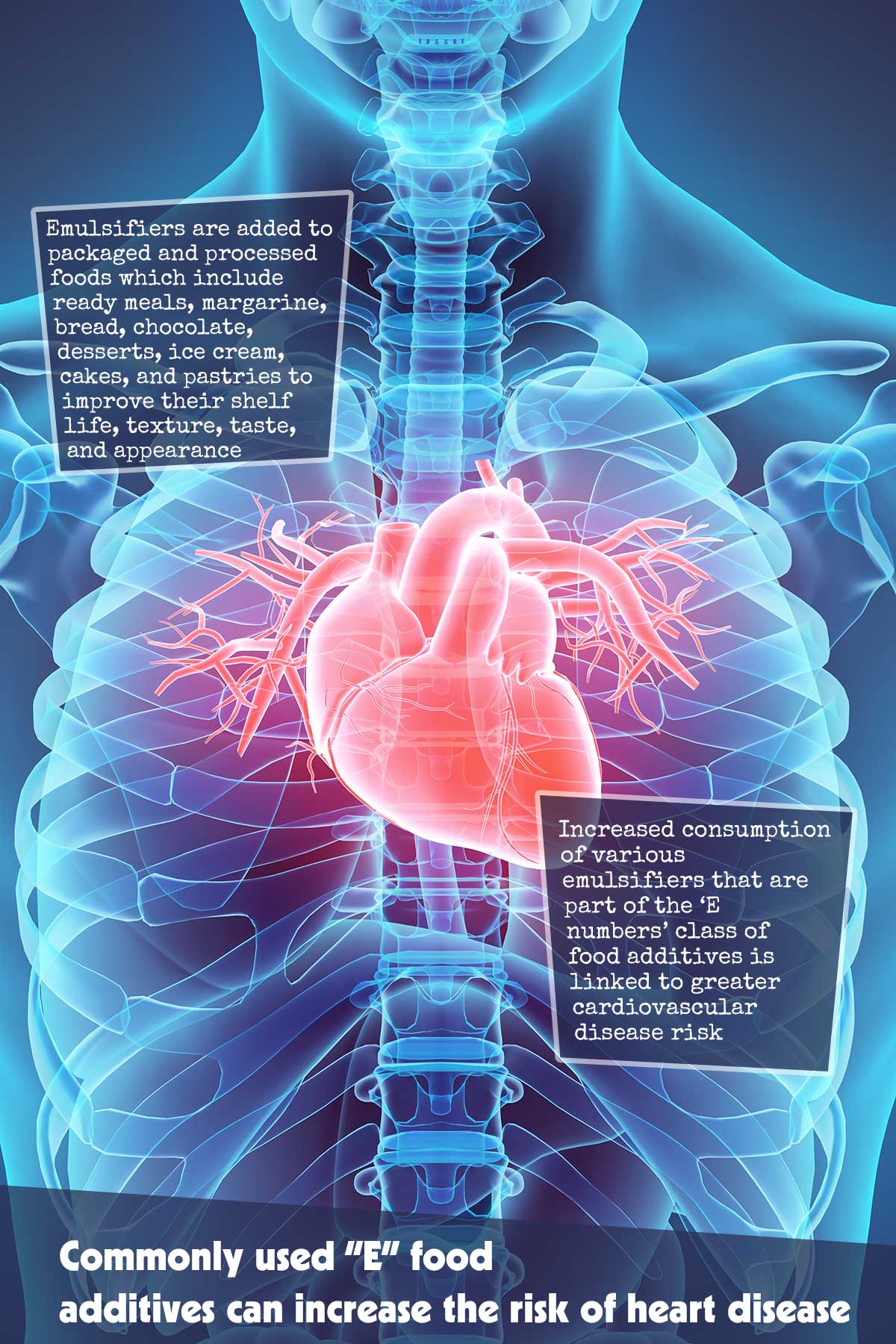A study has indicated that increased consumption of various emulsifiers that are part of the ‘E numbers’ class of food additives, commonly made use of in processed foods to enhance texture and prolong shelf-life, is linked to greater cardiovascular disease risk.
These results have significant implications for public health considering that these food additives are made use of everywhere in thousands of commonly eaten processed food products.
Emulsifiers are added to packaged and processed foods which include ready meals, margarine, bread, chocolate, desserts, ice cream, cakes, and pastries to improve their shelf life, texture, taste, and appearance.
They include pectins, gums, phosphates, red seaweed-derived carrageenans used for thickening foods, lecithins, modified starches, mono- and diglycerides of fatty acids, and celluloses.
Just like with all food additives, emulsifier safety is frequently evaluated according to the available evidence, but several recent studies suggest that gut bacteria is disrupted by emulsifiers and inflammation is increased, resulting in potentially higher susceptibility to cardiovascular issues.
The researchers evaluated the connections between emulsifier exposure and cardiovascular disease risks, such as cerebrovascular disease and coronary heart disease, conditions that affect blood vessels and blood flow in the brain and heart.
Their results are based on 95,442 individuals aged 43 years on average,79% were women, without any heart disease history who were participating in the NutriNet-Santé study.
The individuals completed a minimum of 3 (and as many as 21) 24-hour dietary records online throughout the first 2 years of monitoring. The consumption of each beverage and food item was then matched against 3 databases at the brand level to determine if any food additive was present and how much. Lab tests were also carried out to provide quantitative data.
Individuals were also requested to document any significant cardiovascular disease event, which included stroke or heart attack, which was confirmed by an expert panel after medical records were reviewed.
Deaths associated with cardiovascular disease were also documented making use of the national death register, and various well-known heart disease risk factors such as sex, age, BMI, physical activity levels, smoking status, family history, educational level, and quality of diet (e.g. alcohol intake, salt, sugar, energy) were factored in.
After a monitoring period of 7 years on average, increased consumption of carboxymethylcellulose (E466), cellulose (E460), and total celluloses (E460 to E468) were positively linked to increased cardiovascular disease risks, especially coronary heart disease.
Increased consumption of diglycerides and monoglycerides of fatty acids (E472 and E471) were linked to increased risks of all outcomes examined.
Lactic ester of diglycerides and monoglycerides of fatty acids (E472b) was linked to increased cerebrovascular diseases and cardiovascular disease risks, and citric acid ester of diglycerides and monoglycerides of fatty acids (E472c) was linked to increased coronary heart disease and cardiovascular disease risks.
Increased consumption of trisodium phosphate (E339) was linked to a higher coronary heart disease risk as well. There wasn’t any evidence of a link between the other emulsifiers examined and any cardiovascular conditions.
This is just one observational study, so cause can’t be established, and some study limitations were acknowledged by the researchers such as higher educational background, the high ratio of women, and generally more health-conscious behaviors among the individuals participating in the study in comparison to the general population, that might limit the reliability of the results.
Nonetheless, it was a huge study sample and a large variety of potentially influential factors were adjusted for, while detailed brand-specific food additive data was made use of. Also, the results remained unchanged after additional testing.



